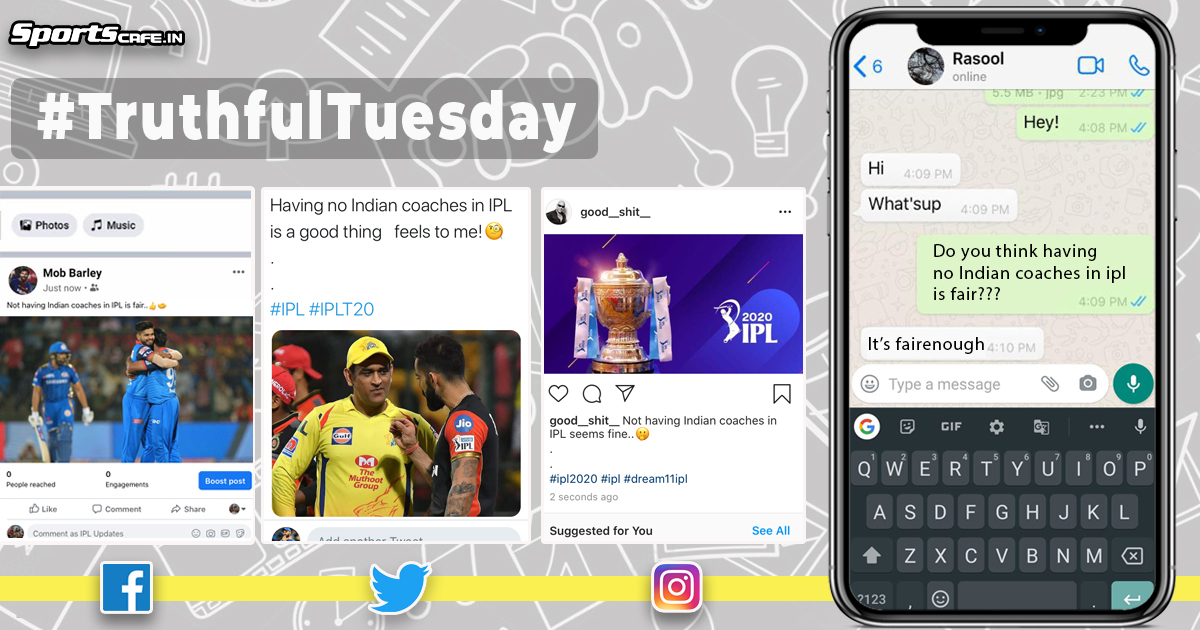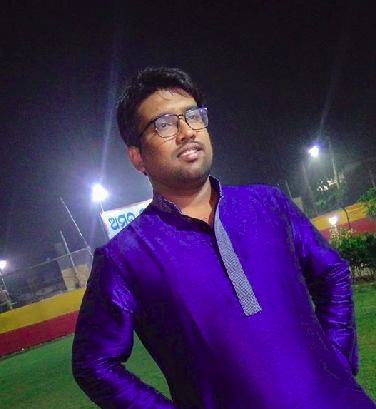Truthful Tuesday | Lack of Indian coaches in IPL - a product of India’s post-retirement bifurcation

Truthful Tuesday | Lack of Indian coaches in IPL - a product of India’s post-retirement bifurcation
|SportsCafe
‘I believe more Indian coaches should coach the IPL teams simply because they have the experience; they have also been coaching the states exceedingly well. Hopefully, IPL teams will have more Indian coaches than foreign coaches’ - Dilip Vengsarkar minced no words in uttering his views.
Dilip Vengsarkar has been a visionary and never shied away from speaking on issues related to Indian cricket, even though it made people on the authority angry. Simply because of his credentials as a match-winner for Indian cricket for years and years, Vengsarkar has a bird’s eye view which is hard to master otherwise. But that estimation sometimes leads to a diabolical situation, bereft of any pragmatism, like the Mumbaikar’s statement in this case.
In the ongoing Indian Premier League, seven teams have foreign head coaches, namely, Brendon McCullum for Kolkata Knight Riders, Andrew McDonald for Rajasthan Royals, Ricky Ponting for Delhi Capitals, Mahela Jayawardene for Mumbai Indians, Trevor Bayliss for Sunrisers Hyderabad, Simon Katich for Royal Challengers Bangalore and Stephen Fleming for Chennai Super Kings. While it is incredibly ironic, as Anil Kumble suggested when asked about the same question, are we looking at the resources available or being extremely emotional in this regard?
Despite being home to the biggest T20 in the world, filled with prodigal home-grown talents and all the top players around the world, India are yet to adapt to the T20 mindset and have failed to understand that it is a completely different sport. In T20s, it is not how beautifully you can bat but rather how effective you are in managing the short-gap arrangements alongside mastering the match-ups. But ask yourself a question - have India truly taken a step forward in that direction and discarded the old notion of treating T20s as an extension of an ODI game?
To trace the understanding, let’s go back to the inaugural season of the IPL when Lalchand Rajput was appointed as the head coach of Mumbai Indians. Deccan Chargers had Robin Singh and Venkatesh Prasad helmed Royal Challengers Bangalore. Soon in the very next season, Shaun Pollock replaced Rajput, Darren Lehman secured the DC services ahead of Robin Singh and Ray Jennings’ appointment reduced Venkatesh Prasad to bowling coach position. It was a general representation of how the sport started to evolve and in a way, a damning indictment of how Indian coaches have failed to adapt to the changing scenario.
In T20 cricket, either you are a former star player, who can add a dash of charisma to inspire the people, read Ricky Ponting, or you are a specialised coach who talks sense, read Tom Moody. In IPL, players have always been conditioned in this way. They not only want to compete with the very best and gain experience but also learn from the players they have once idolised. While talking to a few young cricketers ahead of this IPL, I learnt how much they want to impress their star coaches and learn from the likes of Ponting, McCullum, Fleming and Katich. If the coaches cannot create that sense of alacrity among the young cricketers, we are talking about a problem here.
The counter-argument to the same can be why can't the former Indian cricketers, who were some of the high achievers, do the same work. But then think of the creamy layer - the legends of Indian Cricket like Sachin Tendulkar, Sourav Ganguly, VVS Laxman, Virender Sehwag, and Zaheer Khan are already associated with the teams in some way or other and, moving away from that flat line, we find players with a lot fewer achievements whose zeal to learn is virtually non-existent.
In specialised coaching, where coaches think of the match-ups, use analytics to great effect to ensure everything is sorted, and then dish out a near-perfect visualisation of the game, the Tom Moodys and the Mike Hessons of the world have made a name for themselves by being incredibly self-aware. They know they can’t be a grumpy parent in the dressing room but can show the mirror to the team in terms of what they are doing correctly and what they are not.
The growing commentary scene in India thanks to Star Sports setting up the vernacular languages has also been a major reason behind Indian coaches moving away from the stint. Sitting in a studio and analysing the game is far far easier than actually taking responsibilities and making a difference, the contrary which led to Rahul Dravid leaving his commentary days to become a coach. Not to criticise the players, but the stringent regulation around the conflict of interest in Indian cricket doesn’t allow them to be involved directly in the sport as it is the case in Australia and England.
Till we have achieved a sense of organic growth in these regards, it would be extremely naive to expect the Indian coaches to deliver with the same amount of authenticity. Remember, we are talking of a tournament of IPL's pedigree and not any random T20 League with a little substance. Quality decoded a lot of thing here.
